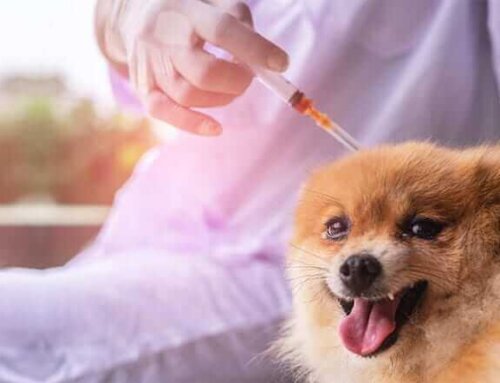I want to discuss options for when our diabetic pets must go on antibiotics. It’s a big deal if a diabetic pet gets GI upset.
I recently treated a canine patient who would not tolerate oral antibiotics. She had a severe infection and needed antibiotics, but each time she took them orally she lost her appetite, vomited, or had loose stool. It got me thinking about our diabetic patients who do not heal as readily as non-diabetics and who are clearly predisposed to urinary tract infections.
The first option that came to mind is the use of probiotics. Probiotics are bacteria that promote well-being by improving the general environment of the intestines and decreasing the adherence of pathogenic bacteria in the gastrointestinal (GI) tract. Probiotics can shorten the duration of diarrhea. You’ve probably heard the suggestion of eating live-culture yogurt to help diarrhea. This is the same idea but there are much higher odds of the bacteria in probiotic products surviving the acid in the stomach and the bile in the small intestine to actually colonize the GI tract. Once there, these “good germs” provide an environment that is unfavorable for the colonization and survival of pathogens or “bad germs.”
Some well known brand names in the veterinary world include Fortiflora by Purina and Prostora Max by Iams. These products provide the bacteria typically found in the GI tract of dogs and cats. They tend to have short shelf lives – because they are alive! The veterinary manufacturers make their best effort to make these products tasty. Some probiotics are sprinkled onto the pet’s food but others come in capsules to improve the chance of survival through the stomach acid. Each product will state how it should best be given.
If your pet is feeling nauseous on antibiotics, your veterinarian has a variety of anti-nausea medications available. When I think of all the choices we now have available compared to back in the “dark ages” when I graduated from veterinary school, I get downright giddy. Choices include maropitan (Cerenia), ondansteron (Zofran), dolasteron (Anzemet) and the good old stand by metoclopramide (Reglan). Anti-nausea medications may be given by injection or by mouth; with some lasting for a full day. Some must be given several times daily. Sometimes we use more than one medication at a time if a pet has refractory vomiting. Of course your veterinarian would need to examine your pet before considering any such medications, but know that we vets have tricks up our sleeves. I constantly tell my clients, “Keep me posted.”
There are numerous successful over-the-counter anti-diarrheal medications. Many clients come into the hospital with a pet with diarrhea and tell me that they have given Pepto Bismol (bismuth subsalicylate). I typically discourage Pepto as the subsaliciylate is converted to aspirin which is not tolerated well by cats or small dogs. One ounce of Pepto is like giving your pet a 325 mg aspirin! I much prefer that clients give kaopectate (kaolin/pectin). Loperamide (Imodium) and diphenoxylate (Lomotil) are opiates that slow GI motility and propulsion. Your veterinarian can guide you to the product and dose that is most appropriate for your pet if needed.
Clearly your veterinarian put your pet on antibiotics for a reason. If there are side effects that force us to stop the medication, your vet may let the GI tract get back to normal and then cautiously try another antibiotic. Communication is key. Never hesitate to call your veterinarian!
NOTE: Consult your Veterinarian first to make sure my recommendations fit your special health needs.












Leave A Comment